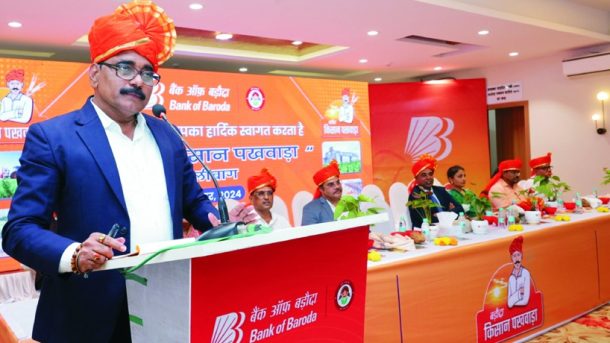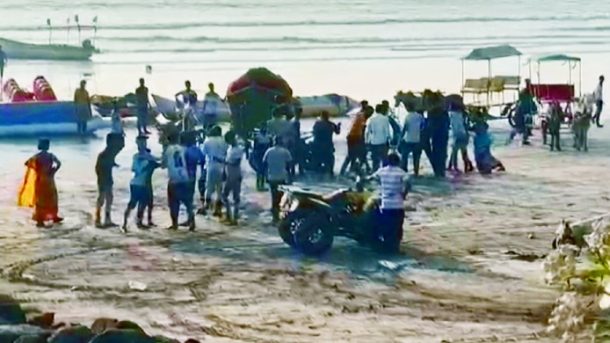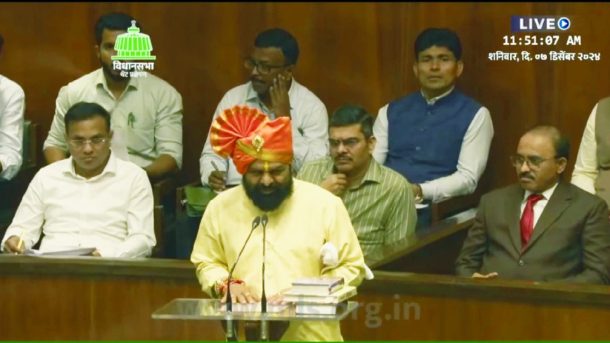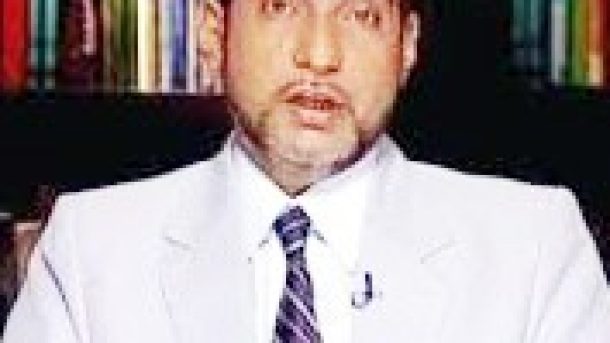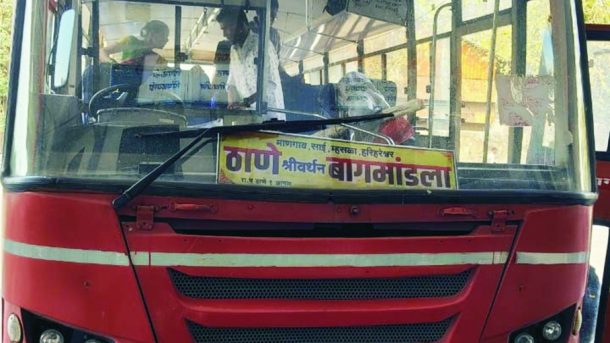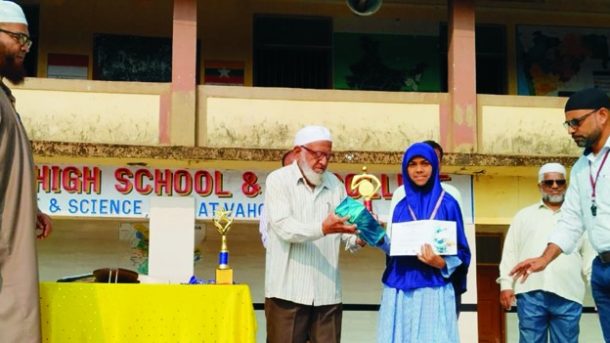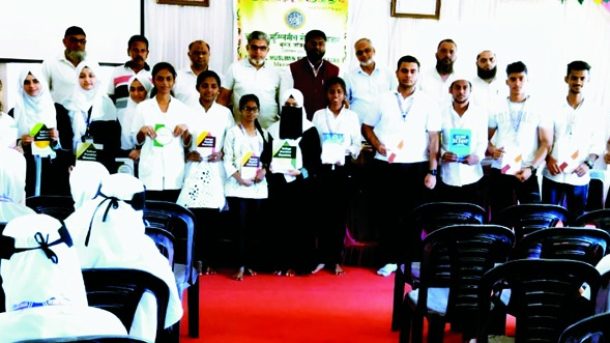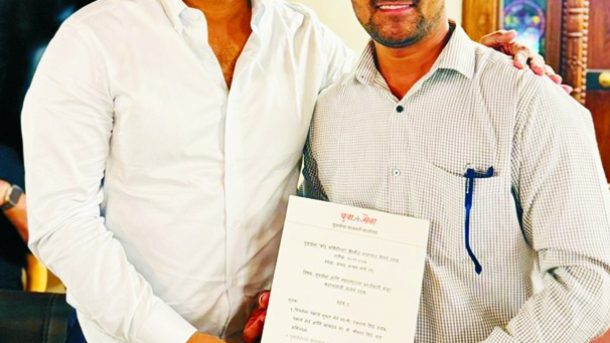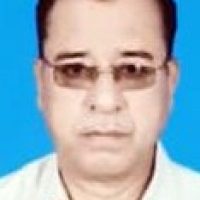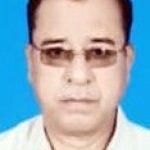रायगड जिमाका – हवामान आणि विविध समस्यांमुळे शेती उत्पादकता आणि नफा वाढवण्यासाठी आधुनिक तंत्रज्ञान आणि नाविन्यपूर्ण पद्धतींचा वापर करून शेतकऱ्यांना शिक्षित करणे ही काळाची गरज आहे.शेतकऱ्यांनी आधुनिक तंत्रज्ञान व बँकांचे सहकार्य यांच्या मदतीने शेतीत आवश्यक ते बदल करून उत्पादकता वाढविणे आवश्यक आहे. रायगड जिल्ह्यातील पांढऱ्या कांद्याचे क्षेत्र 1 हजार हेक्टर करण्यासाठी जिल्हा प्रशासन प्रयत्नशील असल्याचे प्रतिपादन जिल्हाधिकारी किशन जावळे यांनी केले.
बँक ऑफ बरोडाच्या वतीने दि. 25 नोव्हेंबर पासून रायगड जिल्ह्यात किसान पंधरवडा राबविण्यात येत आहे. या अंतर्गत शेतकरयांना धनादेश वाटप आणि माहितीसत्रांचे आयोजन क्षत्रेय समाज हॉल कुरुळ येथे करण्यात आले होते. यावेळी ते बोलत होते. व्यासपीठावर जिल्हा व्यवस्थापक जिल्हा उद्योग केंद्र, जी. एस हरलया, सहा. आयुक्त मत्स्य व्यवसाय, संजय पाटील, रिजनल मॅनेजर नवी मुंबई, मनीष कुमार सिन्हा, एन. डी. जी. एम., मुंबई विभाग मनोज गुप्ता यांसह अन्य मान्यवर उपस्थित होते
श्री. जावळे म्हणाले की, देशाची अर्थव्यवस्था कृषीवर अवलंबून आहे. कोरोना संसर्गाच्या काळात देशातील सर्व क्षेत्रांचा विकास दर घटला होता. शेती क्षेत्र हे एकमेव असं क्षेत्र होतं ज्या क्षेत्रानं विकासदरात वाढ नोंदवली होती. शेतकरी पारंपारिक पिकांसोबत फळ आणि फुलशेतीकडे वळला आहे. दुष्काळी भागातील शेतकऱ्यांचे दिवस डाळिंब, द्राक्षे शेतीमुळं बदलले. परदेशी फळं, भाज्यांची लागवड राज्यातील शेतकरी करु लागलेत. शेतीच्या जोरावर अनेक कुटुंबांनी प्रगती साधली. आपलं राज्य नेहमीच प्रागतिक गोष्टींचा स्वीकार करतं आणि त्या प्रत्यक्षात आणण्यासाठी ओळखलं जातं. शेती क्षेत्रातील संशोधकांनी विकसित केलेल्या तंत्रज्ञानाचा स्वीकार करत शेतकऱ्यांनी श्रमाची बचत केलीच त्यासोबत वेळेची बचत देखील होत गेली. शेतकऱ्यांनी कालानुरूप शेतीत बद्दल करायला हवा.
राज्यातील शेतकरी नवनवे प्रयोग करत असून शेतकरी उत्पादक संस्थांच्या माध्यामातून आपल्या जिल्ह्याचा विकास साधला पाहिजे. येथील वातावरण, पाऊस, जमिनीची प्रतवारी लक्षात घेऊन आपल्या पीक पद्धतीत आमूलाग्र बदल करण्याची आवश्यकता आहे. रायगड जिल्ह्यात बंदर आणि विमानतळ आहे. त्यामुळे आंतराराष्ट्रीय बाजारपेठ देखील उपलब्ध होऊ शकते. या सर्व बाबींचा विचार करून जिल्ह्यातील शेतकऱ्यांनी आपल्या शेतीत नवीन प्रयोग राबवावेत असेही त्यांनी यावेळी स्पष्ट केले. आजच्या युगात शेतकऱ्यांनी शेडनेट व पॉलिहाऊसच्या माध्यमातून विविध पीके घेण्याचे तंत्रज्ञान आत्मसात केले पाहिजे.यासाठी बँकेचे योगदान हे मोठे असणार आहे. बँक ऑफ बडोदा ने किसान पंधरवड्याच्या माध्यमातून जिल्ह्यात 31 कोटी रुपयांची प्रकरणे मंजूर केली आहेत ही आनंदाची बाब आहे. या कार्यक्रमाचा उद्देश हा योजनांची माहिती शेतकऱ्यापर्यंत पोहोचावी अशी आहे. सर्व पात्र लाभार्थी शेतकऱ्यांनी बँकांच्या योजनांचा लाभ घ्यावा असे अवाहन त्यांनी यावेळी केले.बँक ऑफ बडोदाने आपले मुख्यमंत्री रोजगार निर्मिती कार्यक्रमात देखील उल्लेखनीय कामगिरी केली आहे याबद्द् दल जिल्हाधिकारी श्री. जावळे यांनी त्यांचे कौतुक केले. बँक आपल्या ग्राहकांच्या सेवेला सर्वोच्च प्राधान्य देत आहे असे सांगितले.बँक ऑफ बडोदाने शेतकऱ्यांसाठी किसान पंधरवड्याचे आयोजन केले असून, त्याअंतर्गत शेती क्षेत्रातील कर्जाचे प्रमाण वाढवण्याचा आणि शेतकऱ्यांचे उत्पन्न दुप्पट करण्याचा उद्देश आहे. कृषी क्षेत्रात बँकिंग आणि तंत्रज्ञानाच्या वापराला प्रोत्साहन देताना संपूर्ण भारतातील शेतकरी आणि ग्रामीण समुदायांशी संपर्क साधण्याचा बँकेमार्फत प्रयत्न केला जातो असे मनीष कुमार सिन्हा यांनी प्रास्ताविकात सांगितले. यावेळी सहा.आयुक्त मत्स्य व्यवसाय, संजय पाटील आणि एन. डी. जी. एम., मुंबई विभाग मनोज गुप्ता यांनी आपले मनोगत व्यक्त केले.यावेळी पात्र बचतगट व शेतकरी लाभार्थ्यांना जिल्हाधिकारी किसन जावळे यांच्या हस्ते धनादेश वाटप करण्यात आले.

